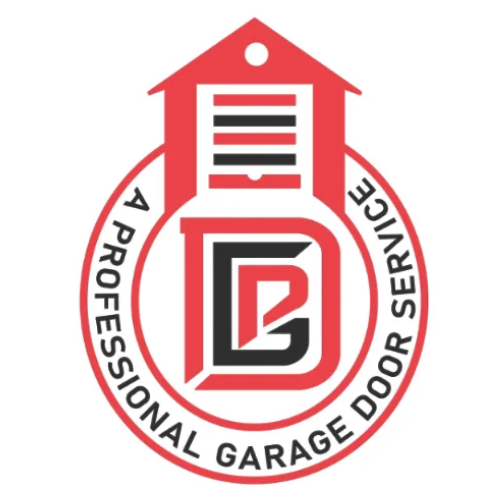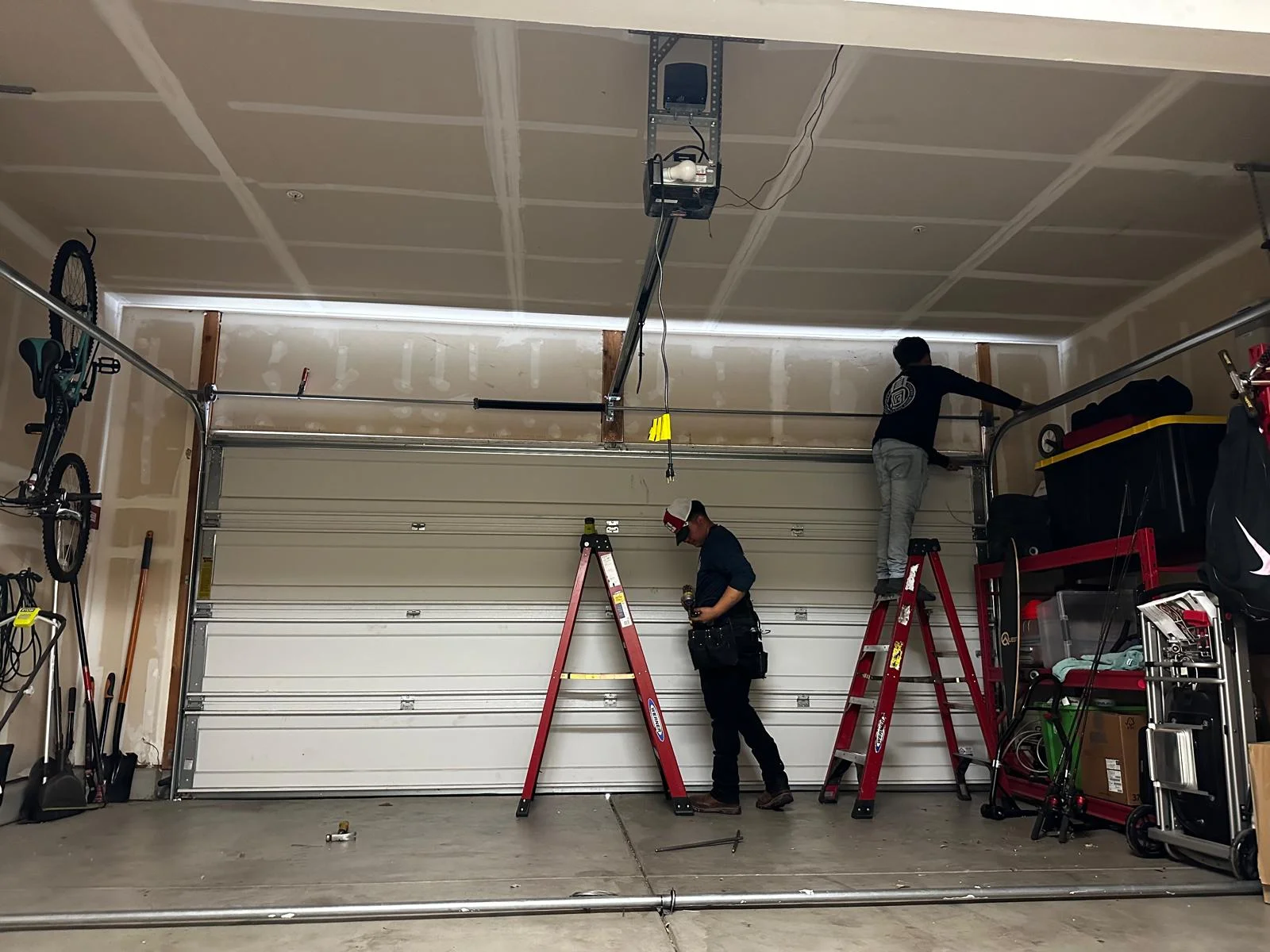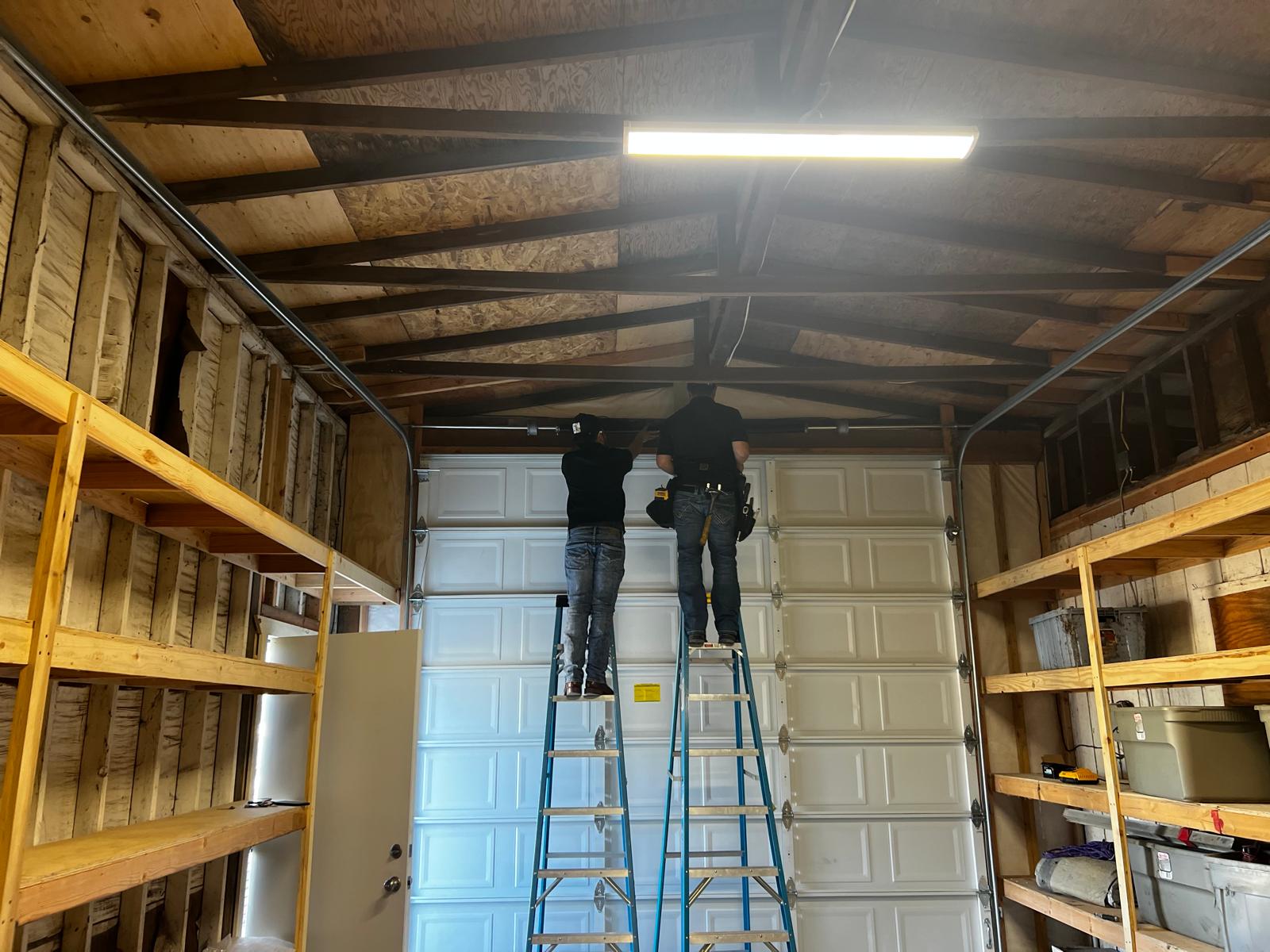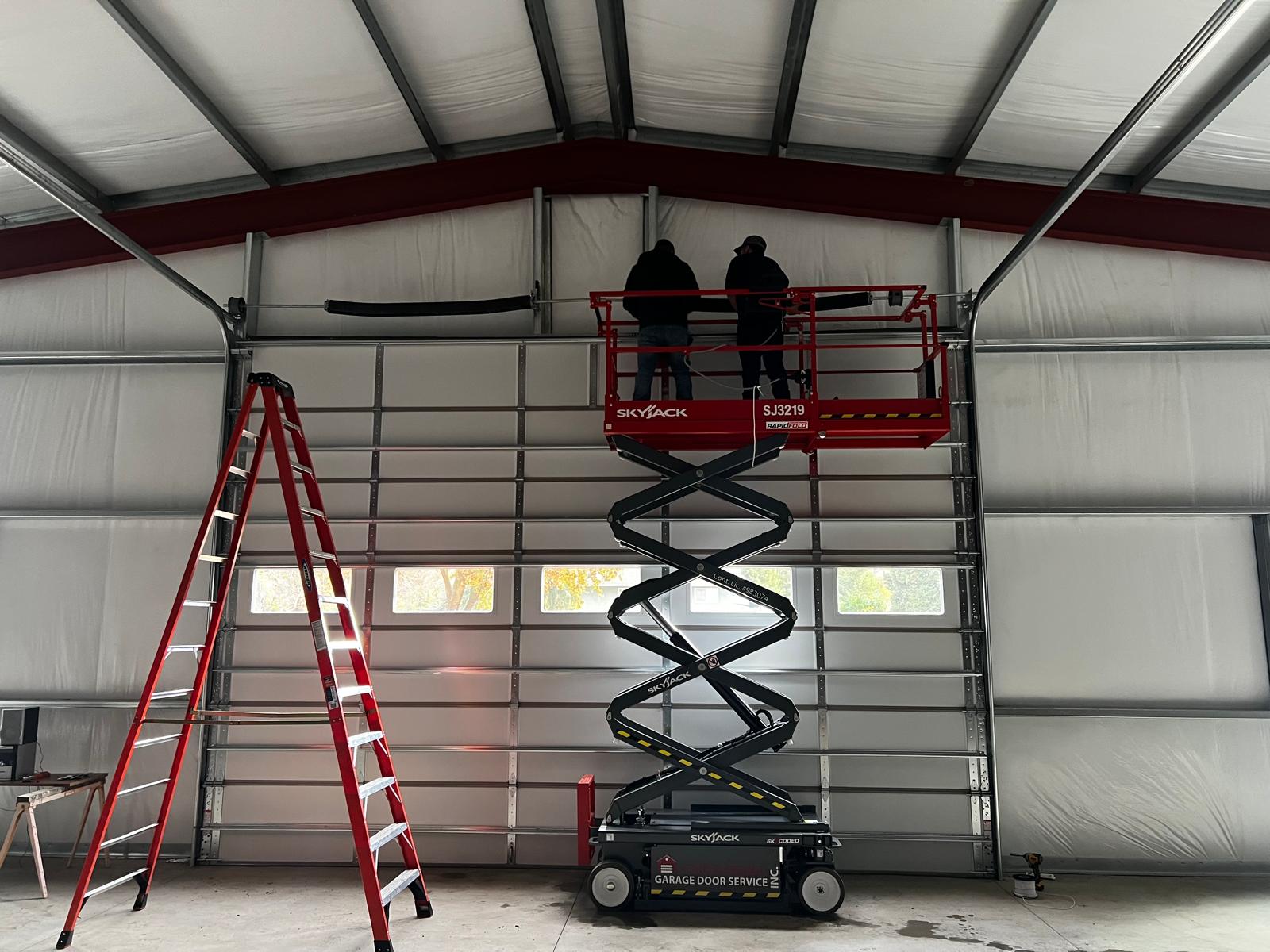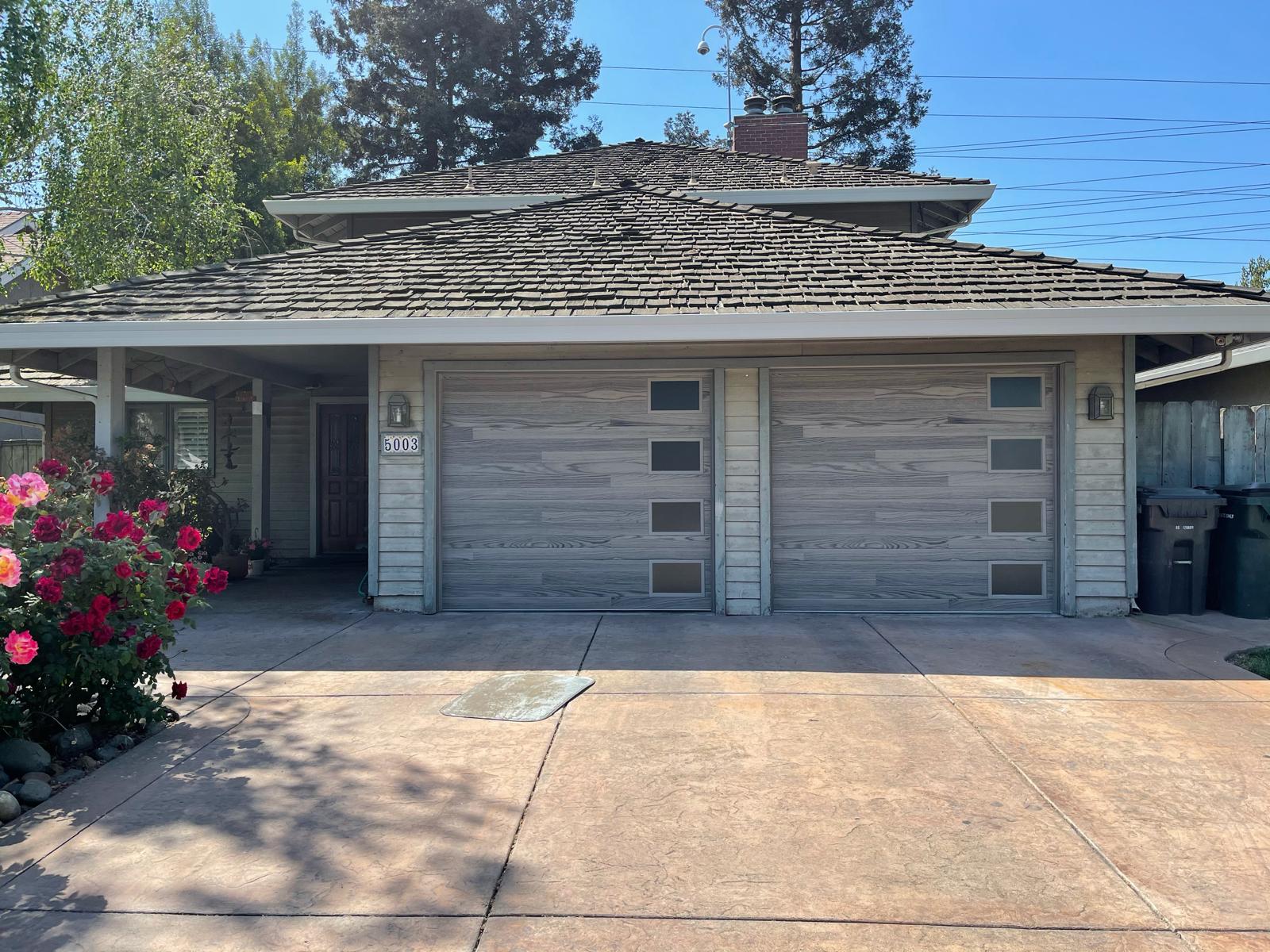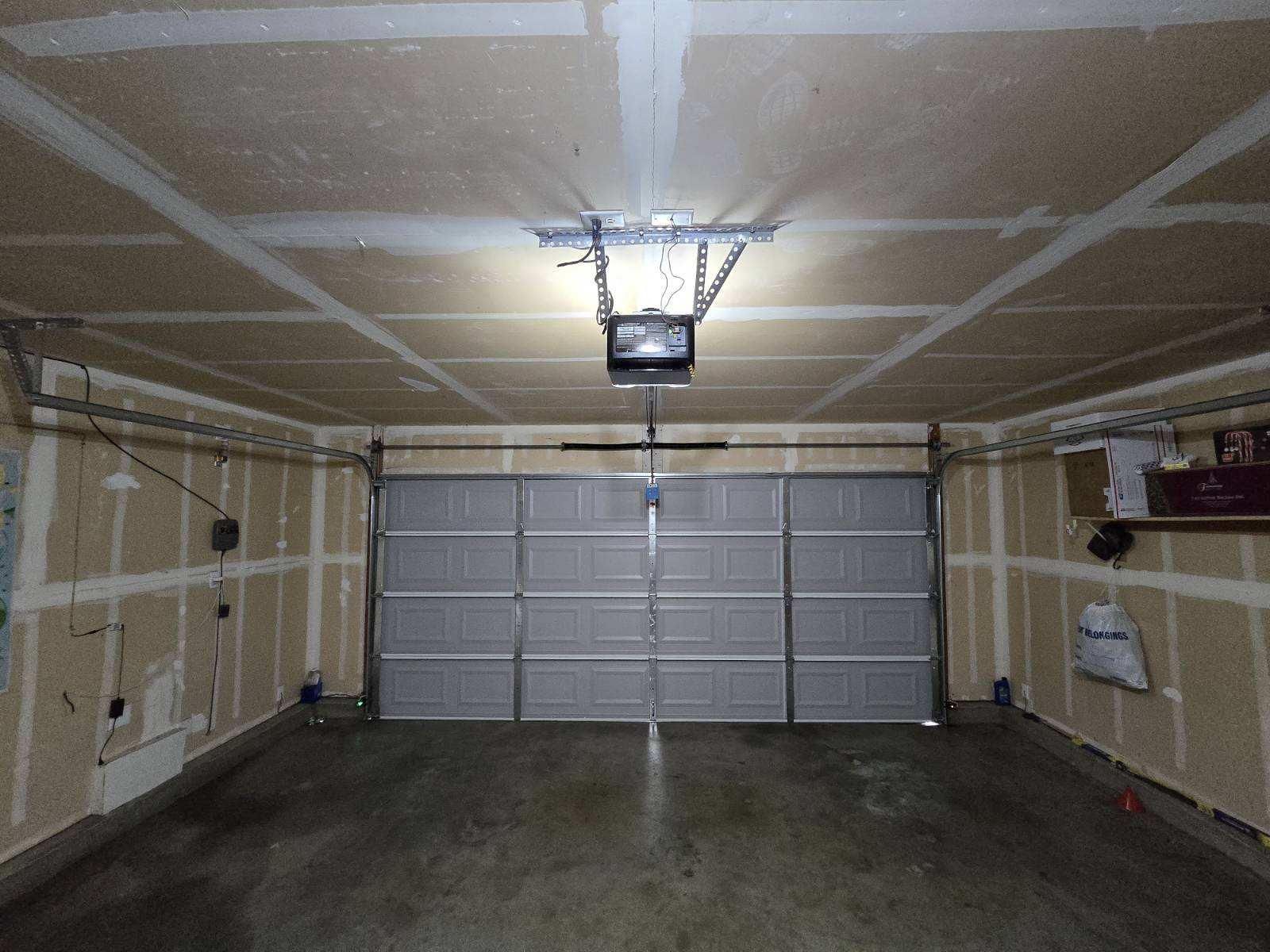Why winter prep matters for California garages
Unlike snow-prone states, California’s winter challenge is moisture, cool air, and dust migration. Garages in Modesto, Stockton, and Tracy experience damp mornings and temperature swings that strain seals, metal parts, and electronics. A quick winter check avoids bigger repairs later.
1) Inspect and Clean Your Garage Door
Start with a full visual inspection. Check panels, hinges, and tracks for signs of rust or corrosion. Winter humidity can accelerate wear, especially in metal systems.
- Wipe door surfaces with mild soap and water.
- Remove any leaves or dirt from tracks.
- Look for rust spots on hinges and rollers—apply light oil to prevent spreading.
Pro Tip
Don’t use harsh cleaners or power washers—they can strip protective coatings and force water into motor housings.
2) Check Weather Seals and Thresholds
Cold drafts and puddles near your garage door? That’s usually a worn-out bottom seal or cracked side weatherstripping.
Inspect Seals
- Close the door and check for visible light or air gaps.
- Touch the rubber strip—if it’s brittle or flattened, replace it.
- Use vinyl or silicone-based weatherstrips for best flexibility in cold temps.
Install a Garage Threshold Seal
- Creates a raised barrier against rainwater and dust.
- Improves insulation by sealing the gap between floor and door.
- Quick DIY install—glue directly to clean concrete.
3) Lubricate All Moving Parts
Cooler air thickens grease and increases friction in rollers and hinges. Use a garage-door-safe spray lubricant to maintain smooth movement.
- Apply light lubricant to springs, rollers, and hinges—avoid over-spraying tracks.
- Wipe away excess oil to prevent dust accumulation.
- Lubricate opener chains and check tension for slack or noise.
4) Test Your Garage Door Opener & Backup Power
Winter storms sometimes lead to brief power outages. Make sure your opener’s manual release and backup battery are ready.
Test the Manual Release
- Pull the red release cord—door should move freely by hand.
- If it feels heavy, balance or spring tension may need adjustment.
Check Backup Battery
- Hold the opener’s light button for 10 seconds to test backup power.
- Replace the battery if the door doesn’t respond or moves slowly.
- Most batteries last 1–2 years in California climates.
5) Improve Insulation & Airflow
Insulating your garage keeps the space warmer and reduces strain on your home’s HVAC system. It’s especially beneficial for garages connected to living spaces.
- Add foam board insulation to walls and garage door panels.
- Use reflective film on windows to reduce heat loss.
- Seal small gaps around wiring holes and conduits with silicone caulk.
6) Store Tools and Chemicals Properly
Cold air and moisture can damage stored materials and create safety hazards. Keep everything dry, sealed, and organized.
- Move paints, oils, and solvents to sealed cabinets or insulated walls.
- Keep ladders and power tools off the floor to prevent corrosion.
- Wipe moisture-prone areas weekly during rainy months.
Prepare Now, Enjoy Trouble-Free Winter Operation
Simple seasonal habits—like lubricating moving parts and inspecting seals—save time and money later. Your garage door will operate smoothly, seal better, and resist winter wear.
Schedule a Winter Maintenance Service with our certified technicians in Modesto, Stockton, and Tracy for a full inspection and tune-up before the rainy season begins.
